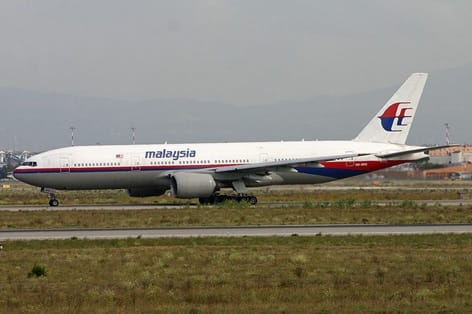Two weeks after the tragic downing of Malaysia Airlines Flight MH17, international experts and observers still do not have full access to the crash site to conduct a proper investigation.
This is partly due to the intensifying fighting between the Ukrainian army and the pro-Russia rebels in the areas around the crash site. Over the past month, the Ukrainian army has retaken a considerable patch of rebel-held territory in eastern Ukraine. As a result, the rebels have now regrouped in Donetsk. Flushing them out will be a challenge since they have embedded themselves in the midst of the city’s civilians.
Najib’s secret negotiation
But in this midst of this, Malaysian Prime Minister Najib Razak succeeded in striking a deal with the self-proclaimed leader of the “Donetsk People’s Republic” to have the plane’s black boxes handed over and the crash victims’ bodies repatriated. He managed to get a direct line to rebel leader Alexander Borodai, through his Russian contacts. The negotiations took place without even the knowledge of Mr Najib’s closest advisers.
Mr Najib’s move has paid off, at least domestically. Public opinion of his handling of the matter was generally positive. Even his fiercest rivals in the opposition Pakatan Rakyat coalition stood in solidarity with him, a sharp departure from the aggressive exchanges seen in the aftermath of Malaysia Airlines Flight MH370’s disappearance in March.
But aside from that, there is not much more that the deal has achieved. Analysis of the black box recorders showed that MH17 was brought down by shrapnel from a missile blast – but who fired that missile? Also, around 100 victims’ bodies remain unaccounted for.
The meeting of two tragedies
The downing of MH17 was a confluence of two tragedies. Close to 300 people on the flight perished. In the ongoing Ukrainian conflict, scores of people are also dying almost every day.
It was initially thought more countries would be drawn into the conflict in Ukraine after the downing of MH17. This has not happened, and thankfully so. The complex political conflicts would not benefit with more actors joining the fray.
Nevertheless, many still see the conflict between the Ukraine government and pro-Russian rebels as a proxy war between the West and Russia. This is however not as straight-forward. Consider for instance the background of Ukraine’s current president, Mr Petro Poroshenko. Before he was painted as the “saviour” of a pro-Western, united Ukraine after his election, he was known for his strong ties with Mr Viktor Yanukovych, his pro-Russian predecessor who fled Ukraine after the Maidan revolution. Mr Poroshenko’s pro-Russia links in the early days have been conveniently forgotten.
Sources:
Did Malaysian leader’s ‘quiet diplomacy’ seal MH17 deal with rebels? [CNN, 24 July 2014]
Ukraine rebel leader Borodai admits to Russia links [BBC, 24 July 2014] 03
Russia, Ukraine and the West: Is Confrontation Inevitable? [Chatham House, 25 June 2014]




